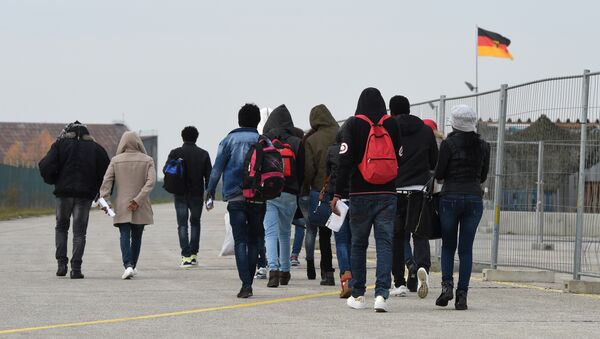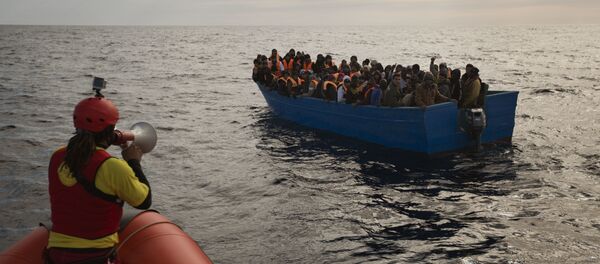Sputnik: Why are we witnessing this growing number of deportations? What is this spike showing us?
Werner Patzelt: First of all, we should underline that the numbers aren't really impressive because compared with the number of refugees having come to Germany this is really no more than a tiny number.
The second issue is that there has been significant pressure from domestic politics to avoid the situation that we have witnessed in Germany for many months, if not years that we were open for entry in the country but we didn't find any means to bring people out of the country who weren't entitled to stay here.
Sputnik: There are certain countries like Italy, that's a primary destination for deported asylum seekers, while Greece rejected a vast majority of requests that were made; Hungary received none of the refugees. What is the relationship of Germany like with these countries because surely the deportations are not sitting well with these countries?
Werner Patzelt: We have an agreement with Italy that refugees who have been registered first in Italy may be sent back by the German authorities if they find such refugees and have technical possibilities to bring them back.
We have no such agreement with Greece so far; and since Italy is closer to Germany, they are only separated by Austria, the German interest of bringing the refugees back to Italy has been much larger than the interest vis-à-vis of Greece where so many other countries are in the way between Greece and Germany such that pressure is not so important in the case of Greece.
In addition, whereas Italy has managed to protect its coasts and ports from immigration by boat people, Greece still has to accept many refugees on her islands such that it's easier to come to agreements with Italy right now than to come to an agreement with Greece.
READ MORE: Germany Sues Online Gun Shop Owner for Selling Arms for Protection From Migrants
Sputnik: To what extent do you think this regulation could drive the countries we've just mentioned, perhaps, further away from the bloc and its rules? Could this happen?
The situation is different in Greece, and Italy in contrast to Greece knows quite well that in the coming months Italy is in need of substantial German financial support due to Italian budget problems.
So it's really a mix of different layers of political issues, which come into the game and migration politics is only a part — an important part, but only one part — of the overall complex.
READ MORE: German Bundestag Votes to Join UN Global Migration Pact — Reports
Sputnik: What is your personal opinion of this Dublin 3 agreement? There's an opinion out there that it's quite a controversial agreement as it puts a certain disproportionate pressure on some countries.
Werner Patzelt: In theory and on paper it's a great agreement, and in theory and on paper it can work. But the precondition of its ability to work properly is the protection of the borders of the European Union, which hasn't been effectuated for a long time.
Sputnik: It's a kind of a controversial agreement; do you think the system could be reviewed to some degree?
Werner Patzelt: The system can be reviewed and there is much talk about reviewing it. But the review is not the problem. The solution of the basic problem is the challenge. And the basic problem is to stop immigration into Europe and to bring people out of Europe who aren't entitled to stay there. And for this basic problem, there is no solution whatsoever in sight.
Views and opinions, expressed in the article are those of Werner Patzelt and do not necessarily reflect those of Sputnik






